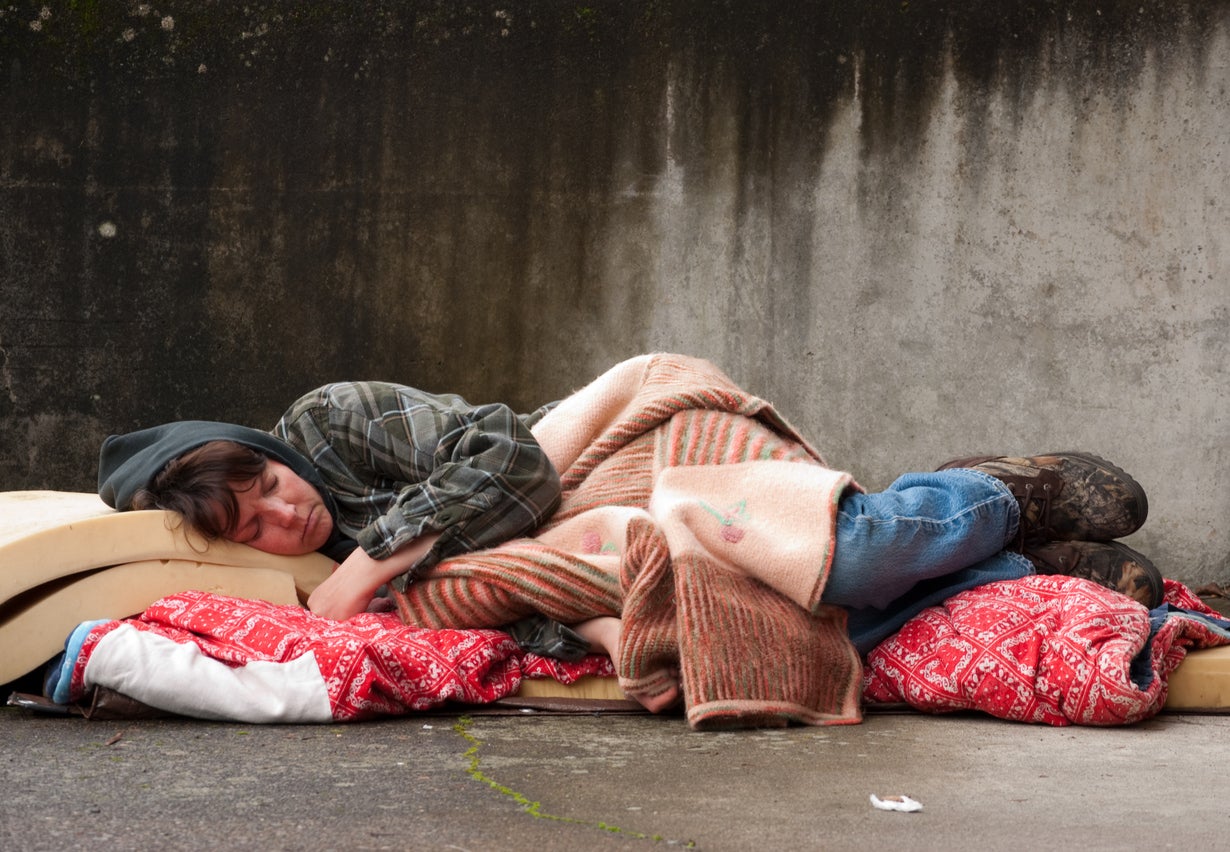Housing is a matter of life and death for homeless people during second lockdown
Failing to properly fund another Everyone In scheme for rough sleepers during the coronavirus second wave will cost lives


Your support helps us to tell the story
From reproductive rights to climate change to Big Tech, The Independent is on the ground when the story is developing. Whether it's investigating the financials of Elon Musk's pro-Trump PAC or producing our latest documentary, 'The A Word', which shines a light on the American women fighting for reproductive rights, we know how important it is to parse out the facts from the messaging.
At such a critical moment in US history, we need reporters on the ground. Your donation allows us to keep sending journalists to speak to both sides of the story.
The Independent is trusted by Americans across the entire political spectrum. And unlike many other quality news outlets, we choose not to lock Americans out of our reporting and analysis with paywalls. We believe quality journalism should be available to everyone, paid for by those who can afford it.
Your support makes all the difference.When a patient recovers from an illness in hospital, we begin a process called “discharge planning”. Sometimes it’s easy, like when a patient lives at home with family and doesn’t need any additional support. Other times it’s more complicated; a patient may need an extensive “package of care” or a stint at a specialist rehabilitation facility.
But what about rough sleepers? Some hospitals have homelessness coordinators who can help source temporary accommodation. But the sad reality is that it’s not uncommon for rough sleepers to be discharged back to the streets. In fact, this was the outcome for the first rough sleeper I treated as a doctor and the injustice of it has stuck with me ever since.
But if you thought that going straight from a hospital bed to sleeping in the streets was bad enough already, imagine it happening during the middle of a winter lockdown at the height of a pandemic.
In March, the prime minister told us to “stay at home” and last Saturday he said the same again. But for rough sleepers, that’s not possible. So, during the first lockdown, the government rightly introduced the Everyone In scheme, which provided nearly 15,000 rough sleepers with emergency accommodation in hotels and hostels. This minimised their risk of contracting coronavirus and, according to a recent study in The Lancet, saved an estimated 266 lives.
But as we enter a second lockdown, council funding for Everyone In is drying up. That simply isn’t good enough and it is not unreasonable to suggest that, based on the evidence available, failing to properly fund the scheme now will inevitably cost lives.
Last month, 17 leading health and homelessness organisations wrote to the prime minister, imploring him to support local authorities to house rough sleepers in self-contained accommodation. On Thursday, communities secretary Robert Jenrick MP announced that £15m will be allocated to support rough sleepers into accommodation through the Protect Programme. But Jon Sparkes, CEO of homelessness charity Crisis, made it clear on Thursday that “this funding for 10 areas of the country isn’t nearly as extensive as what we saw in March, yet the threat from the virus remains the same”.
Winter night shelters normally provide a vital lifeline for rough sleepers, but the risk of coronavirus transmission in these communal areas is just too high, despite the best efforts of staff to make them Covid secure. One New York study found that the mortality rate from Covid-19 for people staying in shelters was 61 per cent higher than the rate among the general population. This serves as an important warning as to why it’s not just about getting people “off the streets”, but about providing rough sleepers with self-contained accommodation where they can socially distance and self-isolate safely.
It goes without saying that rough sleepers are more likely to contract coronavirus, receive delayed healthcare attention when it’s needed, and suffer the severe outcomes of Covid-19, including death. We know, for example, that rough sleepers are three times more likely to suffer a chronic health condition. When you combine this with a lack of hygiene provisions, test and trace facilities, and access to healthcare, you have the perfect storm for a high-risk population.
Effective public health interventions like Everyone In may sound less exciting than new technologies and medications being used to tackle Covid-19, but that doesn’t make them any less important. We have already seen how this pandemic has exacerbated existing health inequalities. Failure to properly fund the Everyone In scheme during the second wave of this pandemic would be a dereliction of duty. The government must act urgently to ensure all rough sleepers are kept safe this winter. Lives are at stake.
Tom Gardiner is a doctor working in London, a member of Keep Our NHS Public, and sits on the executive committee of the Fabian Society



Join our commenting forum
Join thought-provoking conversations, follow other Independent readers and see their replies
0Comments